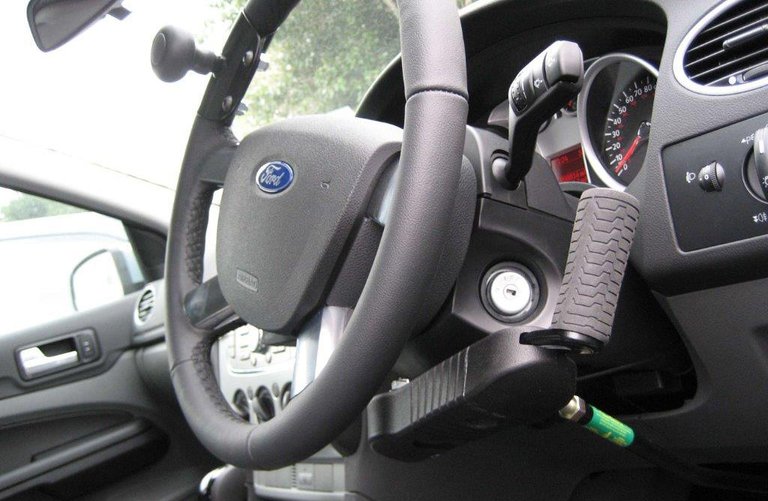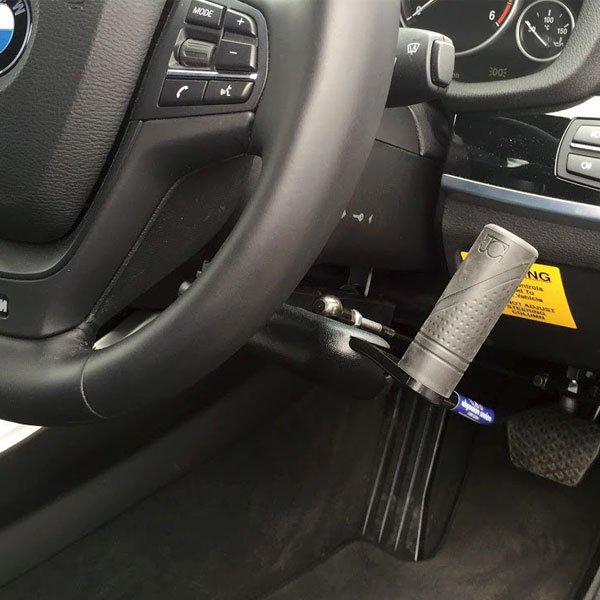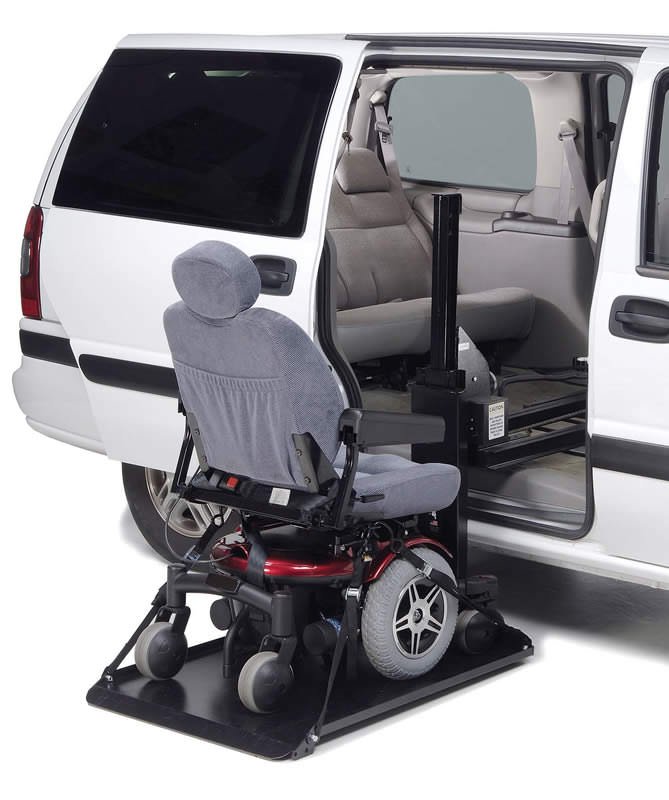There are several considerations regarding amputation and one’s driving; this may include local rules on driving with a disability, useful features on cars that can make a difference, considerations on available helpful specialist products or techniques, and funding and cost. This article is going to focus on the features and specialist techniques out there to assist driving after an amputation.
Some amputees are really able to drive unadapted cars, so far as it has an automatic transmission and power steering. However if the amputation poses some difficulties in driving, adaptations for primary and secondary car controls are considered. It is often advisable to seek advice from mobility specialists.
Choosing A Car
When choosing a car after an amputation, the following factors should be given special thoughts:
Transmission system – automatic transmission is suitable for many disabled drivers, it makes driving easy and makes the car cheaper to convert.
Power steering control – best recommended after an upper-limb amputation.
Enormous footwell space for a prosthesis.
Car Controls
With the following specific adaptations and adjustments, driving can be made easy for an amputee using prosthetic limbs.
Steering
A steering ball or spinner is fitted to the steering wheel to encourage a one-handed control. Often a power-assisted steering will be an added advantage to enable low speed driving, maneuvers and parking.
There are several sizes and shapes of spinners to suit an amputee’s grip needs and the ability to use these spinners solely depends on the level of amputation. It is known to be most comfortably used by below elbow (trans-radial amputees) and I strongly advise that any adaptations on a vehicle should be perfectly installed not to inflate the airbags and other impact sensitive installations in a car; and most importantly, myo-electric controlled prosthesis should be switched off or changed to a manual mode during driving.

Photo Credit: Clark and Partners
Changing the Gear
Many amputees prefer the automatic transmission to a manual transmission. In cases of left leg amputations, an automatic transmission is recommended without any other special adaptations. If it is an arm amputation, hand controls are recommended so far as the opposing limb is in good condition (no paralysis, open injuries or pain etc.)
In cases of bilateral leg amputation, hand controls are strongly recommended because an amputee may have difficulties feeling floor pedals with his/her prostheses and there may also be periods where the stump (residual limb) is too sore to wear a prosthesis and there may be a risk of logging it under the pedal without knowing.
Accelerating/Braking
For the right leg amputee, consider a car with automatic transmission and a flip-up left-foot accelerator fitted to the left side of the brake pedal. This can be driven with the right or left foot and the amputee must be able to use the hand brakes to stop on slopes and other uneven terrains. Where one does not have this ability, a brake assist adaptation is recommended. You will need training to drive this way. For conventional driving the left accelerator could be flipped down as well. Here are a few controls to assist acceleration and braking:
Hand Controls
When fitted in an automatic car it is easier to get used to by most people and there are variances of these system. They could be mechanical or electrical varying in the amount of effort required.
Combined Controls
There are many options for adaptive devices to control both braking and acceleration, with example as follows:
- Steering column mounted controls: push and pull the lever to accelerate or brake depending on the configurations.
- Floor mounted push pull levers: the strength, height and length needed to operate this can be tweaked to suit an amputee’s needs.
- Clamp-on controls: these are bolted on to the pedals, they are designed for temporary use.
Separated Accelerators from Brakes
It is pretty much easier to drive with separate accelerators and brakes by some amputees, this include accelerator rings that are operated with less effort than the push-pull lever, and a driver can steer with both hands on the steering wheel. There is also the hand-operated floor-mounted brakes and customized accelerators.

Photo Credit: Adaptationstation.co.uk
Parking Brake
Attachments bolted on the parking brake pedal makes parking easier, this technology uses simple levers to take off efforts on pressing down and releasing the parking brake pedal, an electric brake worked by push buttons could be an alternative but more expensive than the bolt-on attachment.
Secondary Controls
Upon determination of which primary controls suits the amputee driver, there is need to make considerations for the secondary controls that will make driving with an amputation a lot easier. This secondary controls are used for options like Horn, Lighting, Rrafficators etc.
Getting Into And Out Of a Car
In most cases all a disabled person needs is the right technique. I will advice that a disabled driver should explore guides on helpful equipment and other lifting systems. Some that I know include hoists that lift and lower a disabled on to a car seat. Also, a lifting seat that swings in and out of a car, lowering and locking into a suitable position. With the proper research an amputee would find the most functional one in the market.
Getting A Wheelchair Into a Car
Find below some equipment to help stow or carry a wheelchair:
- Hoists for lifting manual or powered chairs into a vehicle.
- Rooftop hoists for lifting a manual or powered chair onto the roof of a car.
- Wheelchair racks attached to the back of a car.
- Ramps and trailers.

Photo Credit: Ameriglide.Com
Getting A Driver's Licence After An Amputation
After an amputation, returning to driving or learning to drive will entail communication with a responsible licencing agency, where they will assess an amputee's fitness level to drive and possibly carry out the driving assessment s/he needs. This is usually after looking at the amputee’s medical report. Upon every conviction they may decide to give a full licence or a temporary licence or a licence limited to drive only automatic cars. It could even be a total refusal (which an amputee may choose to appeal if they feel they have a case).
Conclusion
Most amputees are limited within their believe of not being able to drive at all -- some are still having doubts about receiving an artificial limb in the first place. Ability to drive should be determined by the level of amputation and other underlying health conditions after an amputation. I hope with this article I have been able to issue a pointer into the world of advanced enhancement technologies to empower amputees to take that pile of chrome and hit the asphalt. Driving is a fun exercise for most. Losing a limb doesn't necessarily have to take that from you.
I appreciate every reader of this piece. You can help create awareness on the possibilities of driving after an amputation by upvoting and resteeming this post. I strive to keep this page insightful, informative and motivating for every reader. Follow me @eetyyudeme for more.
Thanks for giving me your time.
thank you for creating this post! this totally gives awareness especially to all the amputees out there when it comes to driving! very knowledgeable! great job!
Hola buenas tardes. Excelente tema. Me parece muy interesante. Gracias a ti pude conocer más sobre la amputación.
That's a nice one. Quite some impressive technologies. I have always imagined cars with total hand controls, from acceleration to braking. This is the closest to what I see in my head :-)
This is totally amazing... and impressive
This is a good tips for amputees who want to drive.
Omg. This is mind blowing, #Givingthedisabledachancetolife. Good technology impressive
click here.Congratulations @eetyyudeme, this post is the second most rewarded post (based on pending payouts) in the last 12 hours written by a Newbie account holder (accounts that hold between 0.01 and 0.1 Mega Vests). The total number of posts by newbie account holders during this period was 5034 and the total pending payments to posts in this category was $4494.65. To see the full list of highest paid posts across all accounts categories,
If you do not wish to receive these messages in future, please reply stop to this comment.
I have a big smile on my face... It's good I know that my work is appreciated
Peace, Abundance, and Liberty Network (PALnet) Discord Channel. It's a completely public and open space to all members of the Steemit community who voluntarily choose to be there.Congratulations! This post has been upvoted from the communal account, @minnowsupport, by Eetyyudeme from the Minnow Support Project. It's a witness project run by aggroed, ausbitbank, teamsteem, theprophet0, someguy123, neoxian, followbtcnews, and netuoso. The goal is to help Steemit grow by supporting Minnows. Please find us at the
If you would like to delegate to the Minnow Support Project you can do so by clicking on the following links: 50SP, 100SP, 250SP, 500SP, 1000SP, 5000SP.
Be sure to leave at least 50SP undelegated on your account.
Hello! I am Akpan, and I work with a renowned curation guild in this community. Your post got featured in my weekly Curator Remark Anthology and I thought you might want to check out why I picked your post among the hundreds I go through on an average week.
Yeah, I am human curator, not a bot ;-)
@misterakpan many thanks for your curie comments which made this post gain a curie vote, i will put in my best in posting insightful articles, thanks once again.